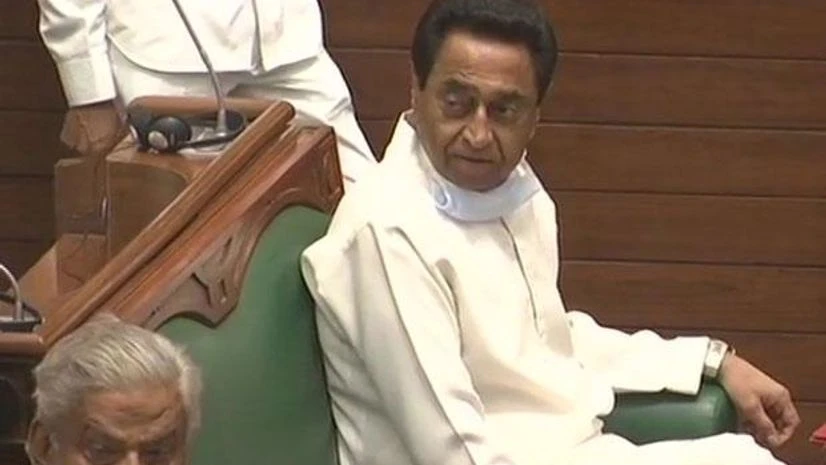Madhya Pradesh Congress
chief Kamal Nath on Wednesday accused the Centre of ruining the farmers of the country and claimed that the three new agriculture laws will make the cultivators captive of the big traders.
Nath made the statement while addressing 'Kisan Khat Mahapanchayat' in Morena district, the Lok Sabha constituency of Union Agriculture Minister Narendra Singh Tomar. The meeting was held in protest against the three farm laws.
"After the implementation of the three new agriculture laws, farmers will become captive of the big traders as mandis will eventually shut down. Earlier we used to import wheat from America, but now the cultivators have made the country self-reliant," he said.
"Our country's 70 per cent economy is based on agriculture, but the central government is ruining our farmers," he alleged.
The former Madhya Pradesh chief minister assured the farmers that the Congress will strongly oppose the "injustice" being meted out to them and would remain firmly with them.
"The farmers of Chambal always stood against the injustice and now the time has come for them to go to Delhi to support the agitating cultivators," Nath said.
More From This Section
The power of farmers will force the Centre to withdraw the three black laws, he added.
On the occasion, senior Congress leader Digvijaya Singh urged the farmers to read the pamphlet he has distributed against the three laws.
"We are with the farmers and if they remain firm on their demands like this, then the central government will be forced to roll back these laws," he said.
Former minister P C Sharma said that the Congress will gherao the Raj Bhavan in Bhopal on January 23, while the party's senior leaders will move towards Delhi on tractor- trolleys on January 26 to take part in the farmers' agitation.
Thousands of farmers, mainly from Punjab, Haryana and western Uttar Pradesh, have been protesting at various border points of Delhi for over a month now against the three laws. Farmer groups have alleged these laws will end the mandi and MSP procurement systems and leave the farmers at the mercy of big corporates, even as the government has rejected these apprehensions as misplaced.
On January 11, the Supreme Court had stayed the implementation of the three laws till further orders and appointed a four-member panel to resolve the impasse.
(Only the headline and picture of this report may have been reworked by the Business Standard staff; the rest of the content is auto-generated from a syndicated feed.)

)
